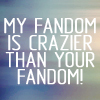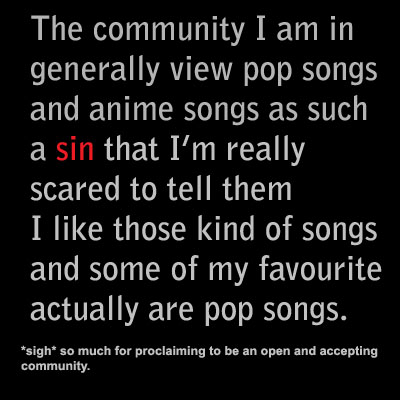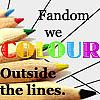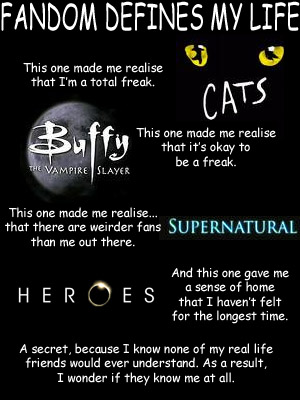 |  |  |  |  |  |  |
 |  |  |  |  |  |  |
Geeks, Fanboys and Stalker Chicks
UW 1020 Fall 2016
Sections M31, M32, M39, M46
Amanda Gooch
Research and Instructional Librarian
agooch@email.gwu.edu
| Course Information | Course Resources | Research Tools and Resources | Course FAQ |
Have you ever thought about the water you’re swimming in? How deep the pond is? If it’s a pond or an ocean? How much time we spend swimming in it? What difference any of this makes?
One might argue (OK I will argue) that it's important to consider the water in which we swim, the media that we consume and how it affects our behavior when we are away from all those screens. One way to do this is to look at what we do with the media we consume. How do we talk back to it, reshape it, pull it to pieces and then put it back together? The answers to these questions have the potential to offer insight into what we value (or devalue) and why. And this is where an examination of fandom comes in. What captures our imaginations? Why do we love Sherlock or Doctor Who or Mass Effect or One Direction?
An exploration of what fans do is ideally suited as the topic for a writing course. After all, one of the primary modes of fan participation has become writing (fan participation in online forums, on their own blogs, in fan communities, through the writing of fan fiction). Fandom is about publically sharing thoughts and feelings with others. It is also about the move from consumption to production, from passively absorbing information to working with a text to make it one's own. In short, it is the very model of university writing. The topic is also multi-disciplinary; sociologists, psychologists, media scholars, and journalists, among others, have all had input into the field. Therefore academics drawn to the field also must wrestle with issues of audience and tone, issues with which we will also engage over the course of the semester.
By the end of the course it is my hope that everyone will have learned to think like a writer, to think critically about the media we consume as well as how and why we consume it, to treat every engagement with the world as an opportunity for research and reflection and, above all, to be inquisitive about things we might otherwise take for granted.